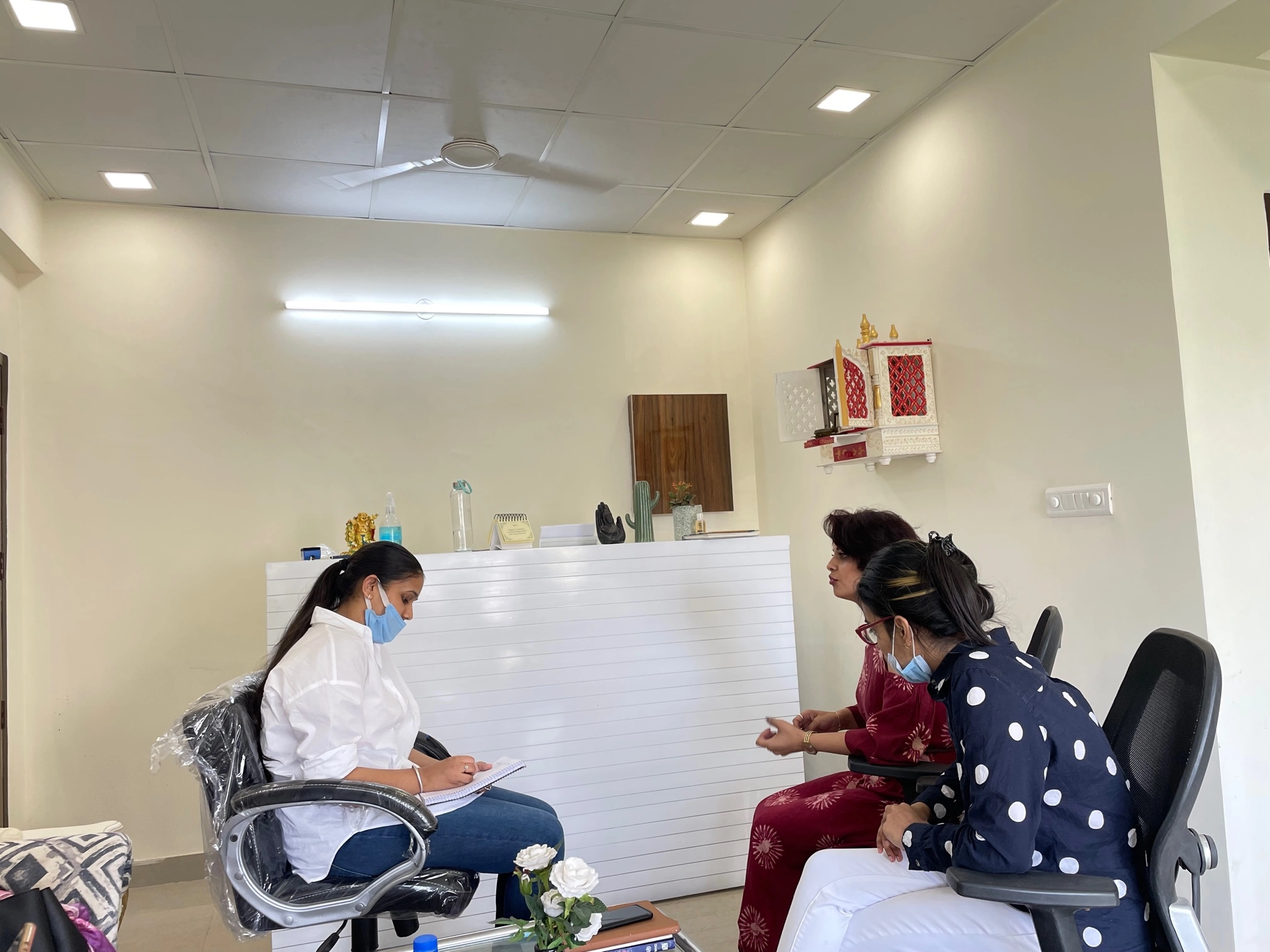USE COUPON CODE “FIRST50” TO GET 50% ON YOUR FIRST SESSION CALL SUPPORT FOR ANY ASSISTANT
15 Minute Free Consultation
Blogs & Resource Materials
Blogs & Resource Materials Currently our country has been facing dilemmas with Pakistan. Operation Sindoor is the result of the injustice done to the citizens of India which has now turned into the war. War affects nations in many visible ways—destruction of structures, loss of lives, and economic collapse. But one of the most widespread and long-lasting effects of war is on mental health, especially anxiety disorders. War can induce anxiety with persistent exposure to war related trauma. The citizens residing in the country specially those who live near border areas experience heightened tension and anxiety related to the constant threat of war.
In countries experiencing armed conflict, anxiety becomes a common and often untreated issue, affecting individuals across age groups and social backgrounds.
Certain groups are more vulnerable to anxiety during and after conflict. Children and adolescents are especially at risk due to the disruption of their development, education, and sense of safety. Studies have shown that children exposed to war are more likely to develop anxiety-related symptoms that may continue into adulthood.
Women, particularly those who have lost family members or faced gender-based violence during conflicts, also experience higher rates of anxiety and depression. Aged individuals and people with disabilities face additional challenges when access to healthcare and mobility becomes limited in war settings.
Certain groups are more vulnerable to anxiety during and after conflict. Children and adolescents are especially at risk due to the disruption of their development, education, and sense of safety. Studies have shown that children exposed to war are more likely to develop anxiety-related symptoms that may continue into adulthood.
Women, particularly those who have lost family members or faced gender-based violence during conflicts, also experience higher rates of anxiety and depression. Aged individuals and people with disabilities face additional challenges when access to healthcare and mobility becomes limited in war settings.
Certain groups are more vulnerable to anxiety during and after conflict. Children and adolescents are especially at risk due to the disruption of their development, education, and sense of safety. Studies have shown that children exposed to war are more likely to develop anxiety-related symptoms that may continue into adulthood.
Women, particularly those who have lost family members or faced gender-based violence during conflicts, also experience higher rates of anxiety and depression. Aged individuals and people with disabilities face additional challenges when access to healthcare and mobility becomes limited in war settings.
Certain groups are more vulnerable to anxiety during and after conflict. Children and adolescents are especially at risk due to the disruption of their development, education, and sense of safety. Studies have shown that children exposed to war are more likely to develop anxiety-related symptoms that may continue into adulthood.
Women, particularly those who have lost family members or faced gender-based violence during conflicts, also experience higher rates of anxiety and depression. Aged individuals and people with disabilities face additional challenges when access to healthcare and mobility becomes limited in war settings.
Rebuilding Minds: Mental Health Services in Delhi & Gurgaon
Counseling is a journey of self-exploration and healing, where individuals find the strength to face challenges, understand their emotions, and build healthier perspectives. It’s not about having all the answers but about discovering the tools to navigate life with resilience and clarity.
War and Anxiety: Understanding the Psychological Impact of Conflict
Currently, our country is facing serious dilemmas with Pakistan. As a result, Operation Sindoor has emerged in response to the injustices suffered by the citizens of India. What began as a response to injustice has now escalated into a full-scale war.
War affects nations in many visible ways—destruction of infrastructure, loss of lives, and economic collapse. However, one of the most widespread and long-lasting effects of war is on mental health, especially anxiety disorders. In fact, war can significantly increase anxiety due to persistent exposure to trauma.
Particularly, citizens residing in the country—especially those living in border areas—experience heightened tension and anxiety related to the constant threat of conflict. As a result, their daily lives are overshadowed by fear and uncertainty.
The Nature of War-Induced Anxiety
Anxiety is a natural human response to fear, danger, or uncertainty. In war zones, people are constantly exposed to life-threatening situations: bombings, displacement, loss of loved ones, and social instability. Consequently, prolonged exposure to such events often leads to chronic anxiety disorders, including Generalized Anxiety Disorder (GAD), Panic Disorder, and Post-Traumatic Stress Disorder (PTSD).
If you’re struggling, know that you are not alone. Here are a few strategies that may help you cope:
Don’t avoid your feelings — Instead, allow yourself to feel them and understand that it’s okay to be scared. Try journaling to express what you’re going through.
Limit news and social media — Set time boundaries and stick to a few trusted sources to avoid information overload.
Ask for help — Reach out when things feel overwhelming. You must know that we are just a call away.
Vulnerable Populations
Moreover, certain groups are more vulnerable to anxiety during and after conflict. Children and adolescents, for instance, are especially at risk due to disruptions in their development, education, and sense of security. According to research, children exposed to war are significantly more likely to develop anxiety symptoms that may persist into adulthood.
Similarly, women—particularly those who have lost family members or faced gender-based violence—experience elevated levels of anxiety and depression. In addition, aged individuals and people with disabilities face additional challenges when access to healthcare and mobility is compromised in war-torn regions.
Long-Term Societal Effects
Even after the fighting ends, the psychological effects of war continue. War-related anxiety can undermine societal cohesion, productivity, and national recovery efforts. For instance, individuals with untreated anxiety may find it difficult to reintegrate into society, maintain employment, or trust institutions. This, in turn, can slow down post-war rebuilding and perpetuate cycles of mental health neglect.
Furthermore, generational trauma is a serious concern. Children of war survivors may inherit the emotional scars of conflict, leading to persistent mental health struggles—even in times of peace.
Conclusion
In summary, war and anxiety are deeply interconnected. The psychological toll of conflict can last not just for years, but for generations. Therefore, by acknowledging and addressing these mental health challenges proactively, we can take meaningful steps toward healing, resilience, and societal stability in the aftermath of war.




































